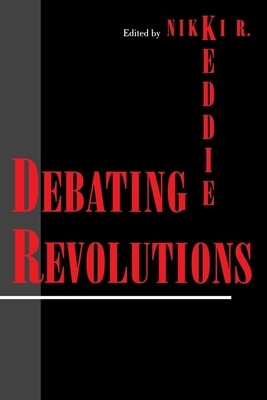
- We will send in 10–14 business days.
- Publisher: New York University Press
- ISBN-10: 0814746578
- ISBN-13: 9780814746578
- Format: 15 x 22.7 x 2.2 cm, softcover
- Language: English
- SAVE -10% with code: EXTRA
Debating Revolutions (e-book) (used book) | bookbook.eu
Reviews
Description
Throughout history, and especially in this century, revolutions have played a central role in human history. Yet, as both the Iranian revolution of 1978-79 and the revolutions of 1989 in Eastern Europe made clear, revolutions are rarely predictable nor attributable to a single cause.
Debating Revolutions brings together some of our best social and political thinkers to address two central questions of revolution: Can they be predicted? And what are their causes? In the debating style of Contention, the award-winning journal from which the essays are culled, the contributors--among them Charles Tilly, Jack A. Goldstone, Edward Berenson, Said Amir Arjomand, and Daniel Chirot--focus on the Iranian, Eastern European, and French revolutions, and on the theoretical and comparative aspects of revolutionary study. Unlike most anthologies, Debating Revolutions has a format that enables scholars to engage one another in discussion, thus resolving many disputes and addressing dilemmas, rather than merely outlining differences.
EXTRA 10 % discount with code: EXTRA
The promotion ends in 7d.21:52:15
The discount code is valid when purchasing from 10 €. Discounts do not stack.
- Publisher: New York University Press
- ISBN-10: 0814746578
- ISBN-13: 9780814746578
- Format: 15 x 22.7 x 2.2 cm, softcover
- Language: English English
Throughout history, and especially in this century, revolutions have played a central role in human history. Yet, as both the Iranian revolution of 1978-79 and the revolutions of 1989 in Eastern Europe made clear, revolutions are rarely predictable nor attributable to a single cause.
Debating Revolutions brings together some of our best social and political thinkers to address two central questions of revolution: Can they be predicted? And what are their causes? In the debating style of Contention, the award-winning journal from which the essays are culled, the contributors--among them Charles Tilly, Jack A. Goldstone, Edward Berenson, Said Amir Arjomand, and Daniel Chirot--focus on the Iranian, Eastern European, and French revolutions, and on the theoretical and comparative aspects of revolutionary study. Unlike most anthologies, Debating Revolutions has a format that enables scholars to engage one another in discussion, thus resolving many disputes and addressing dilemmas, rather than merely outlining differences.


Reviews